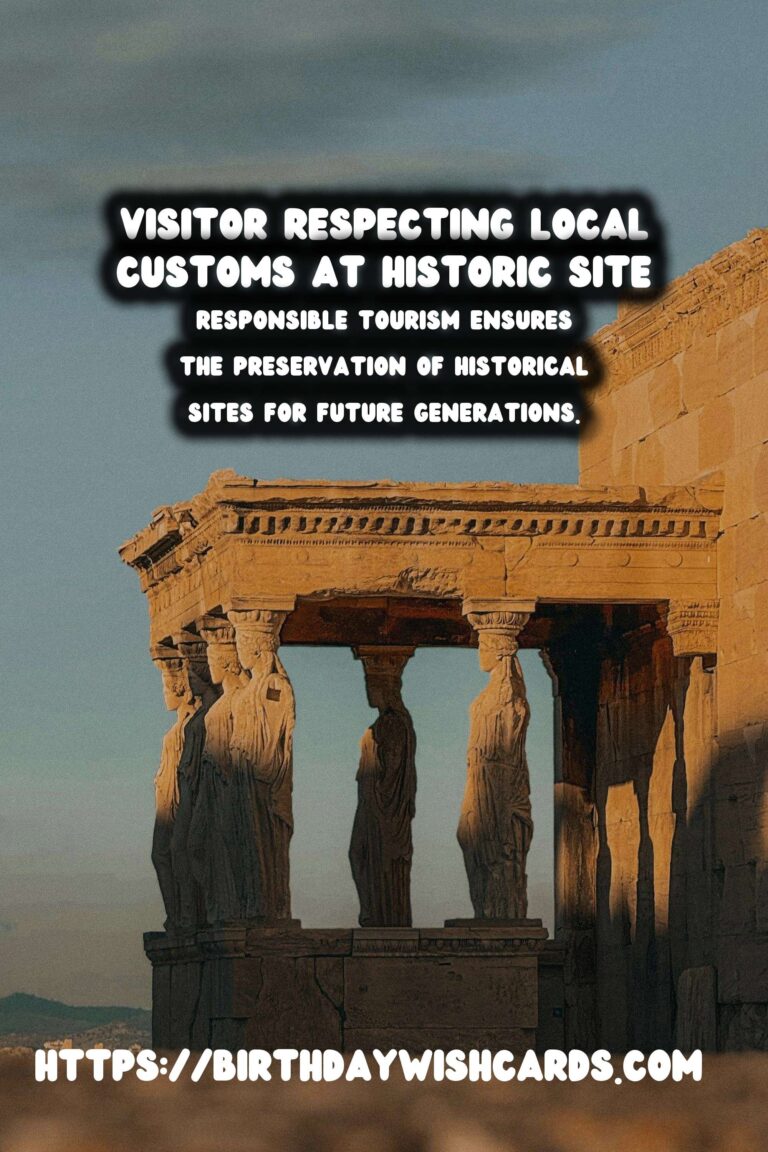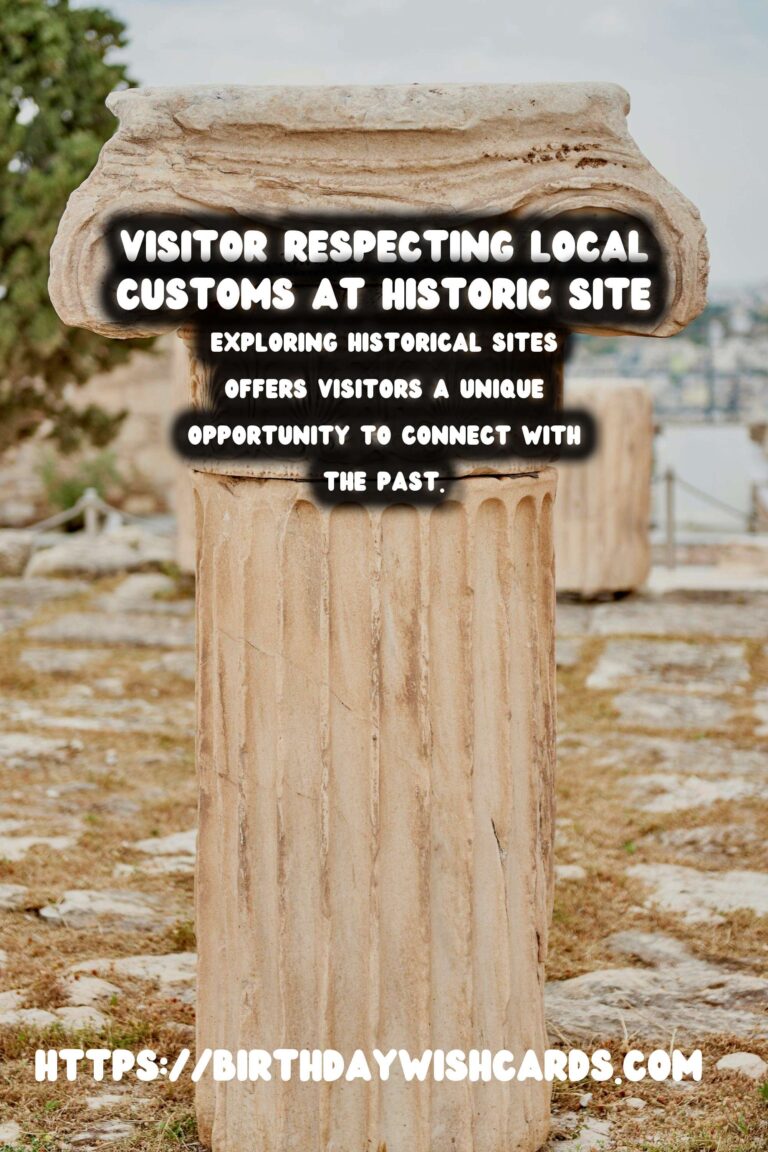
Exploring historical sites offers visitors a unique opportunity to connect with the past, understanding diverse cultures and histories that have shaped our world today. However, it is equally important to approach these experiences with respect and ethical consideration for the local customs and regulations that govern them.
Understanding the Significance of Historical Sites
Historical sites are more than mere tourist attractions; they are repositories of history, culture, and identity. From ancient ruins to sacred temples, each site holds a story that beckons us to explore and understand the peoples and civilizations that once thrived there. Recognizing the intrinsic value and significance of these places is the first step to appreciating them respectfully.
Why Respect and Consideration Matter
When visiting historical sites, it’s important to approach them with the same respect as other cultural experiences. Ignoring local customs and regulations not only risks damaging these sites but can also offend the communities for whom these sites hold significant cultural and historical importance. Responsible tourism ensures the preservation of historical sites for future generations while fostering mutual respect and understanding between visitors and locals.
Research Before You Go
Before visiting a historical site, take the time to research its cultural and historical context. Learn about appropriate behavior, dress codes, and any specific local customs. Websites dedicated to responsible tourism or the official websites of the destinations can provide valuable insights and guidelines. Preparation helps ensure that you are respectful and aware of the cultural sensitivities associated with the site.
Dress Respectfully
Many historical sites, especially sacred places, require modest dress as a sign of respect. In many cultures, showing too much skin is considered disrespectful. Be sure to wear appropriate attire, which may include long pants, skirts below the knee, and covered shoulders. Carrying a shawl or scarf can be useful for covering up when required.
Follow the Rules
Every historical site comes with its own set of rules and guidelines that visitors are expected to follow. This can include restrictions on photography, areas that are out of bounds, or protocols for interacting with the site. Always observe and adhere to the signage and instructions provided at the location.
Respect Cultural Practices and Beliefs
Understanding and respecting cultural practices is vital during your visit. Participate in local rituals, if invited, or observe them respectfully without interference. Recognizing the sacred nature of certain sites enables a deeper appreciation and respect for the cultural heritage they represent.
Avoid Touching or Taking Souvenirs
While it might be tempting to take a small memento, removing objects or artifacts from historical sites is prohibited. This not only detracts from the site’s integrity but is often illegal. Similarly, avoid touching structures or artifacts, as oils from your skin can cause damage over time.
Interact Positively with Locals
Engaging respectfully with locals can enrich your understanding of the site’s cultural significance. Many local communities rely on tourism as a source of income, and positive interactions can lead to mutual benefits. Learn a few words of the local language and honor any traditions or customs they observe.
Sustainable Tourism Practices
Sustainable practices are essential when visiting historical sites. This includes not littering, minimizing your environmental footprint, and supporting local businesses. Opt for guided tours conducted by reputable companies that prioritize conserving the sites and respect local customs.
Conclusion
Ethical visits to historical sites ensure the preservation of cultural heritage while nurturing respect between travelers and local communities. By adhering to local customs, rules, and sustainable practices, visitors contribute positively to a shared global legacy. Let us all travel with mindfulness and integrity, safeguarding our world’s historic treasures for generations to come.
Exploring historical sites offers visitors a unique opportunity to connect with the past. Responsible tourism ensures the preservation of historical sites for future generations. 









#RespectLocalCustoms #EthicalTourism




